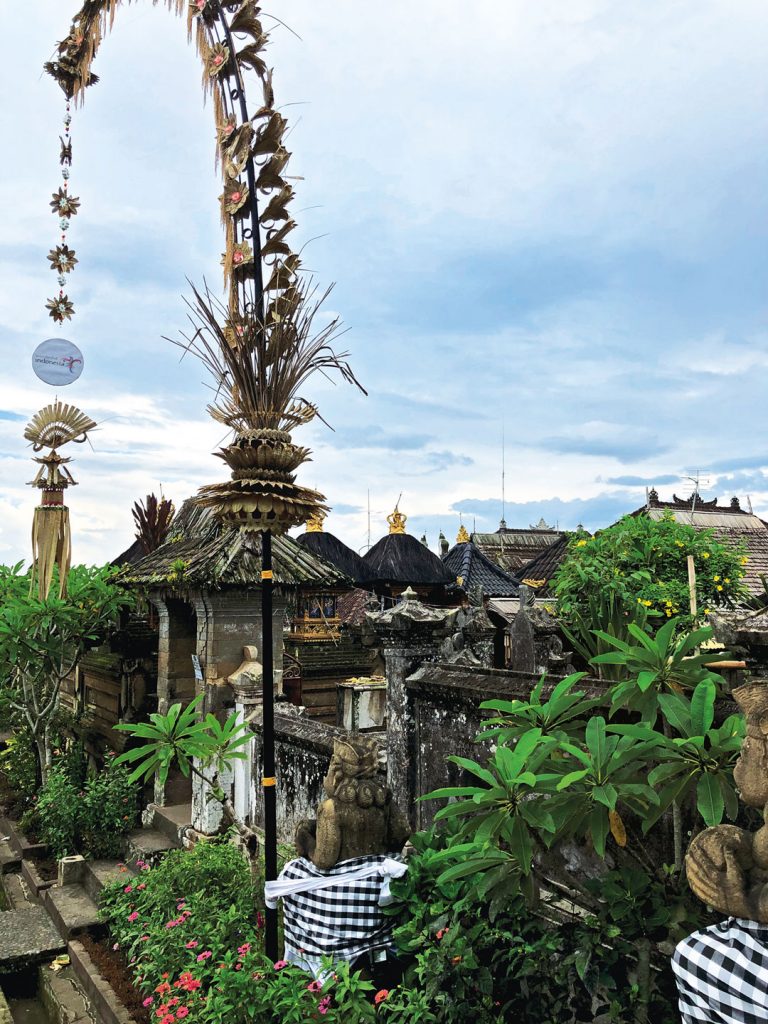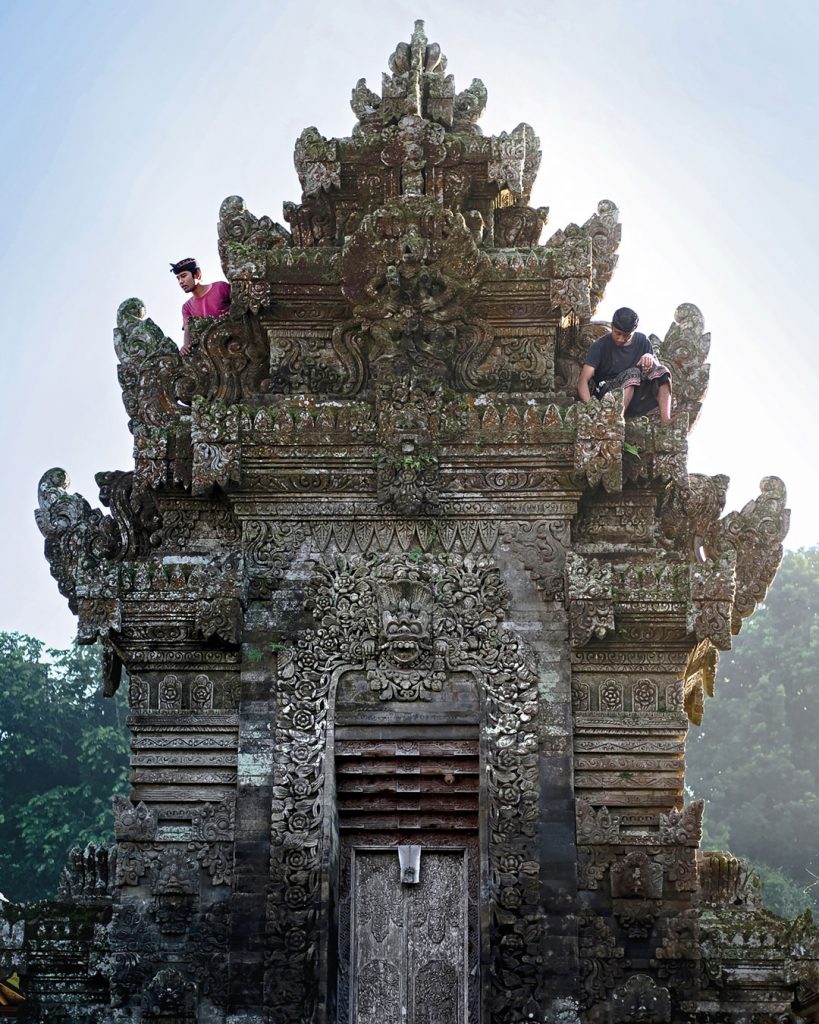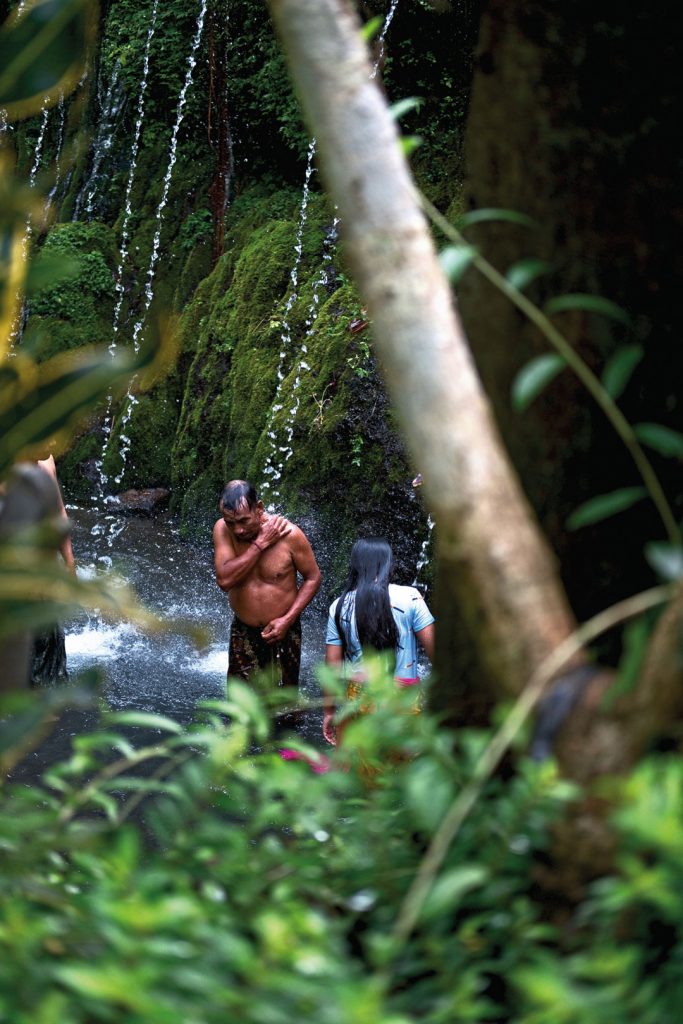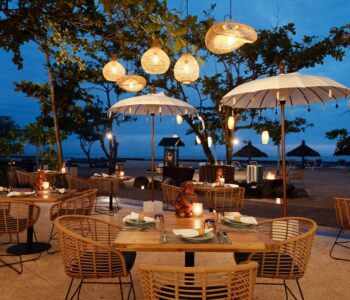Away from the island’s south, a wide range of attractions and activities await. Here in rural Bali, you can develop an appreciation and understanding of the island’s natural beauty, ecosystems and, most importantly, cultural values.

Villages in rural Bali are gearing up for the future of the island’s tourism, working together with the Bali Tourism Agency by establishing Kelompok Sadar Wisata (tourism-awareness groups) to introduce the ‘real Bali’ to visitors to the island.
Out of the 636 villages in Bali, 104 are recognised as tourist villages or locally known as Desa Wisata. These villages are home to natural attractions such as waterfalls, cultural experiences such as temple visits, and even culinary journeys at local village eateries.
Another key component that embodies these villages is accommodation, which propels firsthand cultural contacts with the locals. This includes villagers opening doors to their homes to let visitors stay the night or two.
Bangli Regency, for example, caters to a different market to the south. Visitors come to live like locals. They seek authenticity, away from artificial set ups, intrigued to find the ‘real Bali.’ As of 2018, Bangli fosters 29 t
Located at 625 meters above sea level, Desa Penglipuran in Bangli is admired for its purity and serenity, deemed as one of the three cleanest villages in the world. The home-stays were created in response to visitors’ interest to immerse in the full day-to-day and overnight experience, and accommodating those wishing to escape crowded urban centres and hectic modern lifestyles.

The home stay package is typically inclusive of a quaint accommodation resembling a real life Balinese home (or staying with a local village family), breakfast, outdoor activities, such as hiking Mount Batur or Mount Agung, but amidst the volcano eruption decline, village chiefs are finding other offerings. Desa Penglipuran is at its busiest from July all the way to November.

Located south of Bangli is Desa Wisata Sedit in Bebalang, where the sacred Pura TirtaSudamala resides. This temple is sought after for its spiritual healing rituals that it hosts, including melukat (a ritual using water to cleanse the body and soul), and being a quieter alternative to The Holy Springs of Tirta Empul, north of Ubud.
Sudamala, meaning purifying water in the local dialect, was once exclusive to Balinese Hindus for performing large-scale purification ceremonies, however is now open to public and mostly visited by those pursuing a spiritual awakening.

The charm of this place comes at a complete contrast to its commercial counterparts. It is a place of worship tucked in an area surrounded by greenery, a hallowed hall by the river, but also a dainty playground for little children who go hand fishing to pass the time.
Unlike Penglipuran, which is governed by a regional authority, Sudamala is community run. The members make use of donations from visitors (IDR 5,000 per person on average) for management and maintenance. They embrace partnerships with travel agents, and continuous support from Sudamala Resorts in Sanur whose ‘cleansing day-trip’ package brings guests to the holy water temple every week.
In the future, head of village, I Nengah Armada intends to remove entrance fees and eliminate the idea of monetising a sacred place but worries how development can progress without funding. Among other development plans, he aims to bring his focus to improving infrastructure, such as parking space, and other facilities to maximise comfort and efficiency.
Home stays are not offered yet but talks of providing a ‘real Bali’ experience are ongoing. The community wants to highlight the daily activities of a resident starting from the minute they wake up in the morning, offering sentimental experiences. Activities for women are more synonymous with ceremonial preparations, whilst men would spend the morning tending the rice fields. One could also be a teacher for a day in a local elementary school. These are the experiences that can’t be bought with money.
To ease access to the villages more rural than those in Bangli regency, thus allowing a more pleasant experience for visitors, several road constructions are currently underway, such as the bypass road that connects the island’s south and north. The provincial government, through the Bali Tourism Agency and local KelompokSadarWisata is actively providing consultations for village authorities to develop their areas, such as, among others, Pedawa village in North Bali for cultural experience, Perancak village in West Bali for eco-tourism, and Timbrah village in East Bali for nature exploration. Hopefully with this new focus on locally-run tourism escapes, highlighting authenticity and experience, a newfound appreciation can be fostered for the island’s culture and heritage, reminding visitors and residents alike what makes this island a truly unique destination









